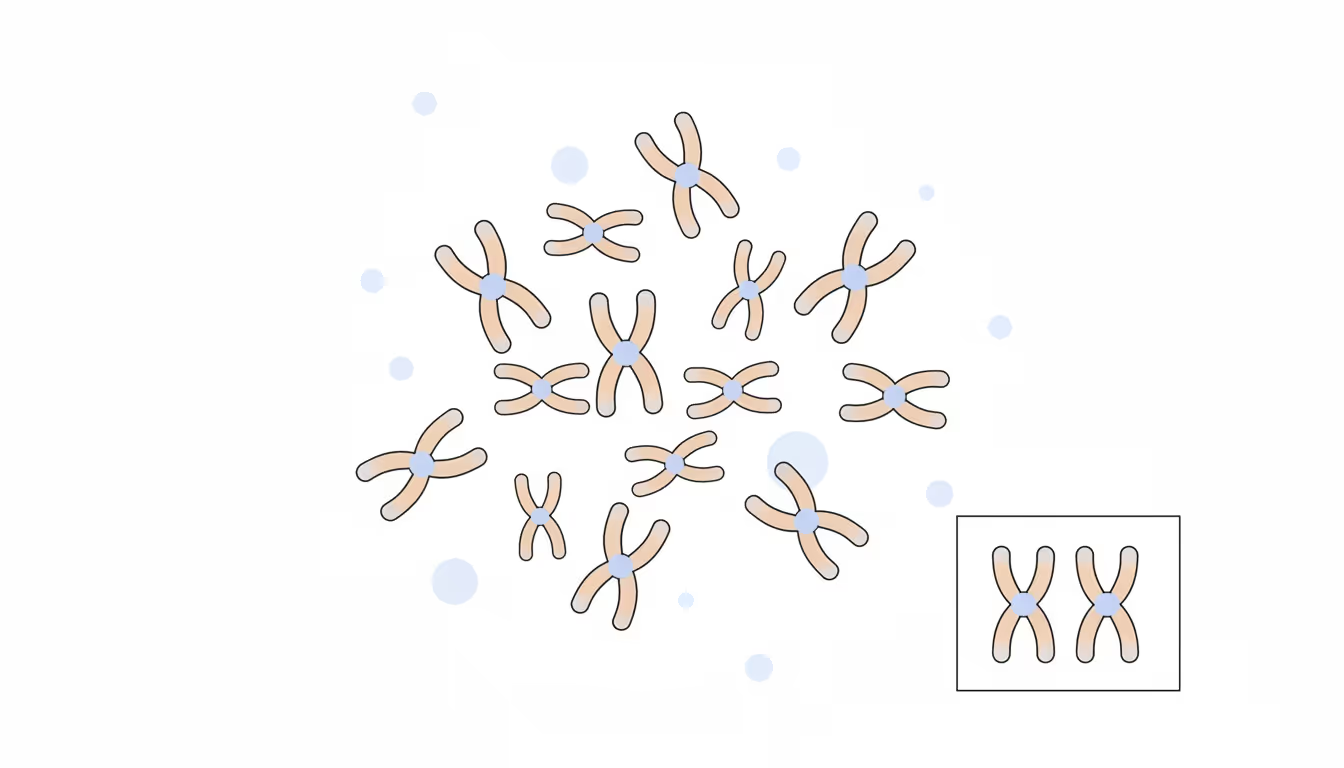
Human Chromosome Count: Humans typically have 46 chromosomes, known as the human chromosome count.History: For fifty years, it was generally accepted that humans had 48 chromosomes. This belief was overturned on December 22, 1955, at the University of Lund in Sweden. Visiting scientist Joe Hin Tjio utilized a novel method involving colchicine and a dilute salt solution to examine cell chromosomes on a glass slide. Colchicine halted cell division at a stage when chromosomes were distinctly visible, while the salt solution helped spread them out for individual observation.Tjio managed to capture a clear image of the human chromosome set in a photomicrograph of a human embryonic lung cell. To his surprise, he found there were only 46 chromosomes. "The number was just an incidental finding," he said, expressing his astonishment that it wasn't the assumed 48.A month later, Tjio, alongside Dr. Albert Levan, published these findings in the Scandinavian genetics journal *Hereditas*. Although Levan, the head of the Institute of Genetics, usually claimed the first authorship, he conceded to Tjio’s request to be listed first since he had made the discovery during Levan's vacation. The historic reference is: Tjio TH, Levan A. The chromosome number of man. *Hereditas* 1956;42:1.Joe Hin Tjio, born to Chinese parents in Java in 1919 when it was part of the Dutch East Indies, engaged in cytogenetic research across the Netherlands, Sweden, and Spain post-World War II. He moved to the United States in 1958 and joined the NIH in 1959, where he spent the rest of his career. This information is drawn from obituaries written by Bart Barnes in *The Washington Post* (Dec. 4, 2001) and Wolfgang Saxon in *The New York Times* (Dec. 7, 2001), as well as personal accounts.




